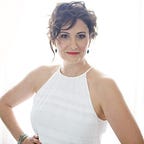DEI Anecdotes: Two Energies — Inclusion vs Exclusion
I don’t think it’s an overstatement to say that all of us want to be included. What’s more human than the desire to feel loved and wanted? In all my work around the world, I have never met someone who did not seek to feel included. A crucial part of this inclusion, however, is opening ourselves up to including others. Multiple times have I seen people claiming to support inclusive practices before following it with a stipulation: “I support inclusion of everyone except…”
For example, after a DEI keynote I gave, an attendee came up to speak to me. “I am a woman of faith,” she admitted, “but I understand that LGBT individuals are born the way they are. It’s not a choice.”
Truth be told, I was stunned by her reaction. Although perhaps her language wasn’t perfect, what a breath of fresh air to hear some inner peace between faith and the existence of the LGBTQ+ community!
Then she continued: “But I don’t think they should have sex. They should all be asexual*.”
And just like that, my heart shattered. Why should she, I wondered, try to police someone else’s life? Why should any of us try to tell other people how to live their lives?
The short and sweet answer, of course, is that we don’t have such authority. It’s easy to think that everyone needs to live “like us,” but insisting that all people need to orient their lives a certain way ultimately creates exclusion, as it suppresses cultural variation, political variation, varieties of sexual orientation, and much, much more. All we can control in life is ourselves. We can only make our own choices. How can we judge others for living differently than us when the truth is that everyone lives differently from everyone else? Those differences are part of the innate beauty of the world!
In a similar experience, I was once working with a company to implement new DEI initiatives. At this organization, there was a man of color who was incredibly supportive of DEI. He actually became chair of the organization’s DEI Council! I found myself greatly admiring his drive and dedication to his DEI work. He was passionate about equity, wanted to increase awareness about struggles faced by diverse communities, and simply sought to create an environment inclusive for all.
Except the LGBTQ+ community. Any and all DEI discussions were encouraged, except for those related to the LGBTQ+ community.
What is more saddening than seeing someone so passionate about creating inclusion and yet simultaneously still perpetuates exclusionary principles? Inclusion does not truly exist when there are certain “exceptions”; the definition itself prevents it. To be included, we must be inclusive. We cannot judge others and expect that others won’t do the same for us! It’s the golden rule, through and through: treat others the way you want to be treated. If we seek to achieve inclusion for all, we must mean all, not “all” with an asterisk. Acceptance has no exceptions!
*Although this woman meant that she believed members of the LGBTQ+ community should permanently abstain from sex when she said “asexual,” I would like to offer a link to a brief article from the Trevor Project on asexuality, which is a distinct sexual orientation part of the LGBTQ+ community.
Dima Ghawi is the founder of a global talent development company with a primary mission for advancing individuals in leadership. Through keynote speeches, training programs and executive coaching, Dima has empowered thousands of professionals across the globe to expand their leadership potential. In addition, she provides guidance to business executives to develop diversity, equity, and inclusion strategies and to implement a multi-year plan for advancing quality leaders from within the organization.
Reach her at DimaGhawi.com and BreakingVases.com.
